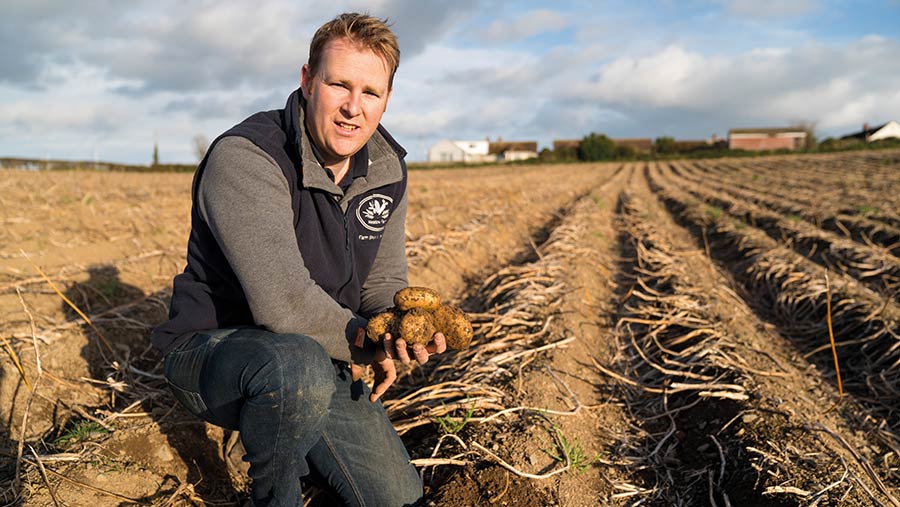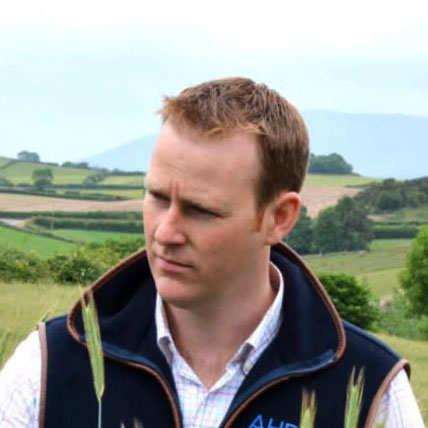Farmer Focus: Benefits of having first ever combine
 © Steffan Hill
© Steffan Hill It’s raining! I started my last article saying I was glad to see rain, but in the five weeks since, there wasn’t a single drop.
However, we have received just over an inch in the past two days. Thankfully, it was steady and didn’t do much damage to crops, and will be major help to finish out the main crop potatoes.
But lots of farms across the province, who would have been skipping for joy at the sight of rain, are now in despair that 50% of their spring crops are lying flat.
As always as a crop farmer, it feels like your back is against the wall all the time and the weather is never with you.
See also: Is regenerative agriculture the future of arable farming?
The rain is just in time for the start of harvest, and August is officially the wettest month in NI, so it looks to be starting off on the norm.
This year I hope to be able to fight back and utilise the dry days to my advantage, as we have bought our first ever combine on the farm.
I’m under no illusions that it will be a cheaper way to cut the grain, but a bigger benefit could come in timeliness of operation.
I certainly don’t envy the contractors trying to juggle it all in a few dry days as several farmers scream down the phone at them. I’ve been there.
It was a joy to host a summer AHDB Monitor Farm meeting at the start of July in glorious sunshine.
Having farmers back on farm for great debate as we tour the crops helps me learn as much as them, and the feedback from some farmers afterwards was excellent, stating that it’s the best thing AHDB has ever done and farmer-farmer learning is definitely the way forward.
However it can sometimes be frustrating. At the end we did a brainstorming session, asking those in attendance what topics we should cover this winter as part of the programme.
Something I feel about all aspects of farming is that we need to be looking at how we can add value to our end product.
Can we grow for a different market – milling, porridge, seed, local malting? Can things like carbon capture be used to our advantage?
It’s disappointing to hear: “We only grow feed here because that’s what the livestock men want.”
It’s a very closed mindset and I think if arable farmers are to survive they have to think outside the box and add value.
I truly believe we can, but you need to go looking for it, not expect it to come to you.


